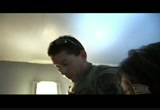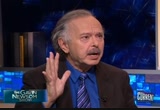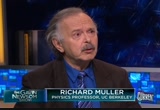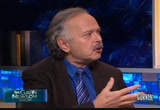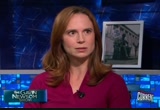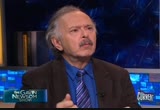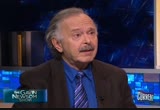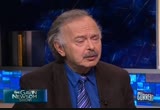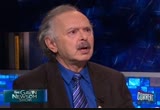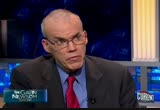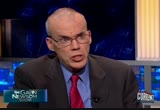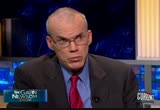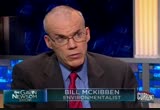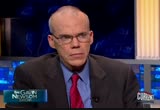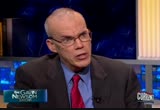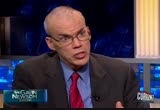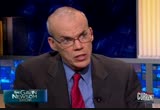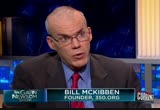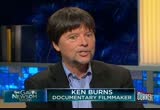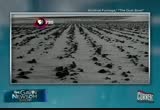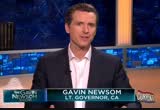tv The Gavin Newsom Show Current December 15, 2012 2:00am-3:00am PST
2:00 am
2:01 am
ourselves from the consequences of global warning. if you're not convinced--if you're not convinced, you will be, i hope, after watching this show. my first guest is scholar richard muller. he joins us to tell us once and for all what exactly made him change his mind. and then bill mckibben. the day after the election bill hit the road with the "dodo the math tour. and finally filmmaker ken burns he's back on the show with his perspective on that other manmade disaster, the 1930s dust bowl. but first up richard muller joined by his daughter elizabeth. together they founded best, the berkeley earth surface. they have shocking facts about
2:02 am
the impact global warming is, and how we can mitigate the carbon output of other countries most notably china. it's great to have you on the show. you made the case, but at the end of the day the real challenge is staring us right in the face, china india and the developing nations. unless we dramatically encourage a shift in the way they consume energy, our individual efforts aren't necessarily go to aggregate into anything significant, is that fair? >> absolutely. china has already put out twice as many gasses as the u.s. in 2012. while our emissions are going down, china is growing at 10% of the year. if all of this was to cease to exist, china would make up for
2:03 am
that in three and a half years. >> it doesn't matter what we do here. if we set an example by spending money and china can't afford to follow that example and we can't afford to subsidize that example, then that example is not much good. we need something that can be done in china. then we would both believe any solution has to be focused on the developing world because that is where--i'm not putting blame on anybody. they have every right in my mind to develop. i would love to see them develop. i would like to see them become wealthy, but we must recognize that along the track they're going in which they're burning primarily coal for their energy, this is going to be the source of the carbon dioxide that will lead to what i consider to be excessive global warming in the next few years. >> so coal is the core of the problem from your perspective.
2:04 am
we're going through a giga watt of coal burning in china alone. we need to make this shift in ways of saving and reducing energy profitable. is that the example that need to be e ported? >> i mean, we can do things. the fact that it's coming from the developing world does not mean that there is nothing we can do. we can set an example that they can follow. it needs to be cheaper than coal. there are solutions that we've come up with that can have a huge impact. first it's energy efficiency. it's profitable. you can get returns of 20% a year and its tax free. it's wonderful. it's something that we all should be doing. the other one is switching the developing world china in particular away
2:05 am
clean natural gas. we use the term clean fracking which doesn't mean it has been clean in the past but it can be clean. that's a solvable problems in the near term in the way that cheap solar optimistic by cheap shower in the long term and getting china to reduce it's emissions in the immediate term, i think clean natural gas is a practical solution. >> it is important and should be developed. i think the nuclear waste storage problem is not technically difficult. people are afraid of nuclear and we have to overcome that fear. we need to have our leaders our president, the tops of our government, the people that people trust need to be the ones who will come out and explain why the the nuclear waste storage problem is not so dangerous. i think we both believe in the long run the renewable technologies solar and wind in
2:06 am
particular are going to win but right now they're so far behind that it will take 20 or 30 years. in china they installed two giga watts peak in solar. that's only one quarter of average power. at the same time they installed 50 giga watts, 200 times as much, in coal. we need to get them off the new installation of coal have them switch to natural gas and do this cleanly. it has not always been done cleanly, so environmental groups are opposing it. we need to get the environmental groups to define what is meant by clean enough. then come up with methods so this can be done in china in a way that verifies they're really doing it. share our technology with them in order to expedite this shift from coal to natural gas. >> one of our greatest achievements is not only
2:07 am
announcing scientific results but giving the data for everyone to access it. we strongly felt that everybody should be able to do their own analysis. get their hand on the raw data. do the programs and the analysis themselves. that's really one of our strongest and best achievements, was making this easily accessible on the web. >> is it fair to say that you're both climate change and global warming deniers. >> i call deniers people who pay no attention to science just as alarmists pay no attention to science. there are skeptics. every scientist scientist by duty needs to be skeptical. i would say we were properly skeptical, as all scientists
2:08 am
should be, until i could defend the science. until i could say we did this and we did this, until i could do that it was my duty as a scientist to look at the data and try to get answers. >> we pointed out there were gaps in the science. that's why people categorized us not so much as die deniers but skeptics. there were gaps in the science and we weren't afraid to say that out loud. >> we didn't know if the temperatures we were going to have-- >> 2.7 degrees fahrenheit increase over the last-- >> what we measured was temperature on the land only, which is where we live after all. that's a little higher rise than in the oceans. yes, that's about the number, 1.5 degrees celsius 2.7
2:09 am
fahrenheit. >> how concerned are about your findings? was it shocking? you didn't know what you were going to anticipate, but the fact that it was so similar--what was the first response in your mind when you ultimately crunched these numbers and made this determination. >> my response was amazement and delight. amazement that our results over the period where we overlapped were so similar to the previous groups. when scientists go to work, you can't write up in your paper all the details that you attend to. you write about 10% of the work you do. because this issue was so important we felt we couldn't trust the previous scientists with these gaps. now we believe they were worried about these gaps too and independently from us decided they wouldn't affect the answers. the science is in pretty good shape. the science on the warming. we're about as warm now as we
2:10 am
were a thousand years ago. it's level yet. but because it matches the carbon dioxide drives so accurately, we can now predict when the carbon dioxide goes up in the future, how much the warming will go up. this is what worries us. not what we have so far, which is really not very much. in the last 50 years it's been less than 1 degree celsius. but in the next 50 years it could be an additional 1.5-degree celsius. that's what concerns us. >> initially when we reached this conclusion and said global warming is real, and it is human-caused, part of the real worry is we didn't see any policies on the table that are going to do anything about it. so our real worry was not so much that this is happening but it's okay because we can fix the problem. it's that it's happening, and
2:11 am
there is nothing that we can think of that will fix the problem. >> in your analysis, in your trajectory we are showing on the screen a chart that you provided, as we fast forward the next half century century some have been very intense if we don't deal with this immediately in the next few years we'll go past that tipping point. do you think we're getting close to that tipping point or is that a bit alarmist? do we have time to create our strategies to build more friends and partners in these developing nations and address our issues here at home. >> the people who are alarmists when they raise issues of tipping points, there have been five or six tipping points, each one looked at scientifically and then after the study well, it doesn't look like a tipping
2:12 am
point. the danger here is we don't understand it well enough. based on our understanding there are no tipping will kick in over the next 30, 40, or 5050 years. >> does that include that which has been already consumed, that it's not necessarily kicked in in terms of chipping at those climate temperatures. >> if we were to stop the carbon dioxide today it would continue climbing. you're a passionate grandfather. you have wonderful kids, you care deeply about this planet and you care deeply about their health their fate and future. if we don't follow this path of seriousness and intentionality, what does it look like from your perspective. >> i think we can do this. there are solutions, there are profitable low-cost solutions that we can use to mitigate
2:13 am
global warming. i'm not sure about stopping it all together. i'm not sure if we'll reach the goals limiting it to 4 degrees or 2 degrees or not but i do think that there are things we can do. i think that--i'm not so optimistic about the international government efforts right now. >> copenhagen, kyoto 2012, you don't have great confidence? >> i don't. but by working--just to start off with the u.s. in china we can already make great strides. then working with other developing countries as well i think there is a lot that can be done that makes sense to do. china is already eagle for get off of coal. they're having all kinds of pollution problems because of it. they have great goals for switch to go natural gas yet it isn't really happening at the speed that one might hope. why isn't it happening? what can we do to help that
2:14 am
process move faster? i believe there will be something that we can do. we have to identify it, and figure out what we can do to speed process. >> and when we say we, we don't necessarily mean the u.s. government. this is something that we're hoping to do through non-government organizations through businesses, environmental groups getting them together, all the stakeholders get them together, and do something that does not necessarily require a treaty from the u.s. government. we believe in this case it's largely getting our technology, which has been developed mostly in the united states, and used almost exclusively in the united states getting it over there and getting it working. i think this is to everybody's good. >> what do you make of bill clinton, i know because i've heard him over the last year or so, he calls you a hero of his. how does that feel? to have the ex-president speak to you in those glowing terms.
2:15 am
>> it's overwhelming. i consider him the hero with the wonderful work his found foundation has been doing. he's the one who deserves that title, not me. but we believe now having made a case, a scientific case, that we can address the issues of the skeptics. we found when we talked to thoughtful skeptics we can bring them over. we understand why they object. they object for valid reasons. now we're trying to get this coalition together that can solve the problem--so far the obama administration has done wonderful things about a bilateral agreement with china. they're doing their best to share this technology. we think even more can be done. that's what we're trying to do now with the second half of our berkeley earth surface project. >> thank you so much for taking the time, thank you. >> thank you.
2:16 am
>> one of our best known and outspoken environmental >> wow! i've never seen anything like this. >> when disaster strikes sometimes the only way out is to look within. current tv digs deep into the extraordinary tales of heroism determination and escape. "trapped" experience the drama. back to back to back. >> hold on mates! >> catch the "trapped" mini-marathon today starting at 1 eastern. on current tv.
2:18 am
i want the people who watch our show, to be able to come away armed with the facts, and the arguments to feel confident in their positions. i want them to have the data and i want them to have the passion. but it's also about telling them, you're put on this planet for something more. i want this show to have an impact beyond just informing. an impact that gets people to
2:19 am
take action themselves. as a human being that's really important. this is not just a spectator sport. >> environmental activist bill mckibben said the earth is overflowing with energy. we just haven't learned to put it to good use. bill, thank you for coming on the show. you wrote a remarkable piece from my perspective in the "rolling stone" recently. 2, 565 and 2795. >> 2-degrees, the one thing that the world has agreed on about climate change. we cannot let the planet warm more than that. every government has signed off which is a good thing since we raised the temperatures by one degrees. 565 giga tons of carbon billion
2:20 am
tons, the scientists say we could have that and have some hope of staying below that two-degree level. 2795 giga tons. that's how much the financial analysts tell us that the fossil fuel industry has in its declared reserves. oil and gas is still below ground but economically it's above ground. they'll burn it unless we figure out how to stop them. they have five times the carbon necessary to break the planet already in the reserves, and they spend hundreds of millions of dollars every day looking for more. >> let's talk two degrees the celsius not fahrenheit. that has to be put in perspective. that's three and a half fahrenheit. that's a point you're making,
2:21 am
how do you break the economic reality of that in a world where theredollars and cents drive decision. >> the only way you do it is to stand up to the fossil fuel industry, the same as we did to the tobacco industry ten years ago. there was a point where there was no shame in selling cigarettes because we didn't know it did anything bad for you. we know about climate change. we know the fossil fuel keeps pouring carbon in the atmosphere a. and b pouring money into washington to make sure that nothing ever changes and the planet will go down the tubes. >> i appreciate the tobacco example, but it moves offshore finding customers everywhere.
2:22 am
they'll just find different ways of popping up elsewhere. >> that's why 350.org built the first big climate campaign. we're having day in action in india against coal. we're working with the arab climate demonstration. and then we'll have seven delegates from every country on earth except north korea where we never had any luck working. but every place else. we'll never outspend the fossil fuel industry, so we have to find other currencies, movement, spirit passion creativity. sometimes we have to spend our body like we did to stop the keystone pipeline when we had the largest civil disobedience action in 30 years.
2:23 am
>> the flip side we were not able to stop them in moving forward with the equivalent of what in giga tons of coal that the obama administration, whose been leaning in on this more than most presidents-- >> the obama administration let shell go up and start drilling in the arctic. >> as the ice melt there is, nine trillion barrels of potential opportunity. >> we're making a series of bad decisions, and those bad decisions reflect the political power of the fossil fuel industry. there no longer needs to be these bad decisions. we have alternatives. germany, the one large country that took serious this problem the germans announced they're going to soar past their target by 2020, and they think they'll be up by 65% all right this summer. voluntarilygermany, there were days
2:24 am
that they used solar panels inside their own borders. they don't have florida texas new mexico to pad their statistics. they were showing that the engineering is there. >> germany raises a number of questions, and deutsche bank did a number of questions there was a greenpeace making the argument, it was deutsche bank saying there was a paradigm here. it begs this question. 2012 germany will reach their kyoto targets. the united states has pulled away. what other country has the envelope open this year will reach their course, and what was the economic lesson learned in terms of their success or failure as it relates to dramatically changing the way they produce-- >> look at germany and the
2:25 am
scandinavian country which are the own people who have done like they're supposed to, their economies are doing pretty well, thank you. there are other countries who have abandoned completely their equipment, canada, they'll money for the koch brothers pumping tar sand, so we can't help with the world problem, sorry. that's running into stiff resistence among canadians. there's resistence building up around the world and the polling data reflects it. even today rasmussen found 68% of americans thinks global warm something a serious problem. the exit polling data during the election found 41% of people based their vote largely or somewhat on the response to hurricane sandy. climate was hardly mentioned in the campaign, but it made it's
2:26 am
voice heard in the last minute. >> so what do we need to do differently? i say we individually and in the collective way as it relates to policymakers to address something that is overwhelming when you look soberly at your data and the data you'ving facts. this is not something that a few solar panels and a few recycling programs will do enough. >> structural change which can't happen until we break the fossil fuel industry. that's why we want a movement that helps to bring down apartheid 25 years ago. we want every college and university and church and city divesting it's holdings from stock and explaining why, and putting moral pressure on them. we launched this in seattle in front of a huge crowd. the mayor stood up to introduce me. he said, i spent the afternoon talking to my treasurer figuring
2:27 am
out how to pull our money out of fossil fuel. they made their official announcement, it will be a hideously hard fight but that fight is engaged. at least we're saying out loud what's true, that these companies are now rogue they stop exploring for new hydrocarbons, and until they stop lobbying in washington we've really got to regard them as the source of this trouble. >> and always the bottom approach to solve problems. is it the companies who are at fault? or all of us. i'm sure you've flown around the country in a plane that uses fossil fuel. >> you answered the question yourself right there. even when we don't intend to. most of us don't care at all whether our power comes from the sun or wind or fossil fuel. in fact, we prefer that it comes
2:28 am
from some place clean. we're not the ones making those decisions. we're not the ones spending literally billions of dollars a year in lobbying and making campaign donations making sure that nothing ever changes. we can't afford burning fossil fuels in our lives the way things are set up. you might want to take the train, but if there is no train you can't take it. the job we have to do first is diminish the power of the fossil fuel companies enough that we can get something done, that we can begin to make those basic structural reforms. above all else, that we can put a price on carbon and the damage it does in the atmosphere. >> your carbon tax advocate? or dividend. >> the dividend is a good system. you put a big honking tax they run the price up at the pump, that's good. it reminds you that you don't need a semi military vehicle to
2:29 am
collect your groceries. but they take the money that's collected, and write a check to everybody in the country every month for their share. 80% of americans come out ahead. if you have a learjet, then you don't come out ahead. but if you have a learjet you're frankly part of the problem at this point. >> nuclear steward others on the leading edge of the movement said-- >> you might as well burn $20 bills to generate electricity. >> to expensive because of the regulatory realities. >> post fukijima, to persuade people they want to build a stripped down power plant without safety precautions in their neighborhood, you know? >> yes but in an ideal world from your perspective, would that an solution. >> no, in an idea world we would do what the germans are doing and put up windmills and solar
2:30 am
panels. we know how to power the world. the world is bathed with sun. we're overflowing with energy. we just need to get serious about putting it to use. we've known how to do it for a long time. i was in china not long ago i sat with the head of the company that's the biggest company in china. 25% of chinese get their domestic hot water off their roof when they take a shower, 250 million chinese, it's coming from the roof compared to one percent of americans. not because we don't know how to do this. wang ming showed me in his museum. one of his prized possessions an old solar panel that jimmy carter put up in 1979. ronald reagan took them down for
2:31 am
manlier forms of energy. that's a perfect demonstration that it's not engineering that we lack but political will. >> thank you for your leadership and example, and hopefully all of us will heed that example. >> thank you gavin very much. >> as bill said the earth is loaded with plenty of good energy. we just need to change our behaviors. philanthropist wendy schmidt is trying to help us >> she gets the comedians laughing... >> that's hilarious! >> ...and the thinkers thinking. >> okay, so there's wiggle-room in the ten commandments is what you're telling me. >> she's joy behar. ... and current will let me say anything. >> only on current tv.
2:33 am
2:34 am
you won't have to take a physical or answer any health questions. plus, your costs will never go up and your coverage will never go down. if you're between 50 and 85, for less than 35 cents a day. there are no health questions or medical exam. you cannot be turned down because of your health. so call about the colonial penn program, and ask one of their representatives about a plan that meets your needs. . >> wendy schmidt has made it her personal mission to raise awareness of clean energy. together with her husband she has launched a family foundation aimed to create a systemic change in how we view and use our resources. wendy, thank you for coming on the show.
2:35 am
>> thank you. >> how do you create a constant vigilance of climate change and global warming. >> this is a vexing question for those who have the fact. the social scientist also tell you that people do not respond to long-term threats. respond to short-term threats. what are the most immediate short-term threats? people respond to things that have to do with their health, the health of their families. the future of their grandchildren. they can see that because they know those people. they can't think about polar bears or ice caps melting. there is a small percentage of theme who care about those things but most people can't. people who talk about climate change and want to see action on climate change really have to focus on where people live and what's happening to them. the folks at climate central now have an interactive tool that you can go on with your computer and look up your zip code and look at various scenarios of global warming might do to the
2:36 am
tides of your area. how will you be flooded, how much. people have to feel connected to this information. it's been very outside for too long. >> you have a foundation, and this is the cause-- >> one of them. >> one of the causes of your life in many respects. you've been leaning into this for some time. is one of the challenges from your perspective just the dissemination of facts that seem to be manipulated by those that are still in denial? what is the challenge from your perspective from research and the perspective of promoting consciousness that ultimately changes behavior? >> i come at this, and we come at this at the foundation with a different perspective than most environmental groups because it really is the battle. what we're really looking at overall is a systemic change. it's a systems change in the way we think about everything that we do. the resulting climb change that we've got right now, it's a system of something. it's not the cause.
2:37 am
it has an affect, but we brought it about the. we had an industrial revolution. we brought fossil fuel out of the ground to power this fantastic evolution in the 20 century that made a lot of people's lives better, not everybody but raised the standard of living, transportation and we fly all over the world. the world became a better place. the people responsible for that feel like they did something good, not bad. i don't feel like going after oil and gas companies and vilify them even though sometimes we have to when things are going on that shouldn't happen. but the world needs to transition out of the idea that resources are infinite. i grew up in a world like that. the 1960s and 70s if you want it and you can buy it, you should have it. now how much stuff should anybody have on this planet. if everyone wants to live like americans then we need 2.4
2:38 am
planets. we need to think about everything, the use of fossil fuels and climate change we're not the director of the system, we're in it. there is so much wisdom in nature that we can learn from and have the life we want and still protect the natural environment because it's our greatest resource. >> do you have confidence in the body politics to ultimately lead us down a path of consciousness, or are you in the basis in the work you're doing philanthropic and otherwise, to say listen, i'm not going to wait around, and start changing behavior from the outside-in rather than waiting for inside-out changing. >> other foundation is interested in financing demonstratible products. who is going next?
2:39 am
the mayors, the governor, state representatives, let's give these people something to demonstrate that works. their populations by all polls i've seen wants. everyone wants clean energy. all the new energy jobs in our country in the last year have come from renewables. people don't know that because they think of solyndra. that's in the news but that's not the story. there are better stories out there, and we believe in investing in those things. i'm a real optimist. this is not going to happen quickly, not as quickly as we like but it's doable. >> i share your point of view especially as a former mayor mayors have the ability and the front lines toty rate to itterate and cause good and bad and leave clues of success that can be scaled elsewhere. we talk about edge. obama winning this election from your perspective, 1% of the
2:40 am
popular vote is not necessarily a mandate. some have argued it's a mandate of sorts. but the idea that global climate change and consciousness about the way we produce and consume energy, are you confident in the second term that he's going to lean in in a significant way? are you confident that this country ship of sorts? >> i'm confident that if he does move in that direction people will rise up and follow him. whether he'll do that, i really can't say. it's a very complicated place as you know, and his job is very completecomplicated. if people open the door, they will it will come rushing through. we've met our reduction coles from 2020 and 2012. as soon as you set the standard people want to reach the goals. people want to do the right thing. they wanted to do the right thing 100 years ago when we
2:41 am
built up our industrial infrastructure. everybody wanted the right thing, but we know there is a better right thing now. and we know it because we're collecting the world's information that tells us this. we'll have 9 billion people on the planet. our resources are not getting bigger. water is going to be the oil of the next century. that's what the wars will be fought over, not oil. i think the president does look for it. i think he's a visionary, and this will take vision. this will take leadership, and i hope we'll see it. >> i hope so too wendy, thank you for being on the show. you heard a lot about climate change and how it's certain to have a serious impact on how we live our lives in the future. let's take a few minutes to learn from our past. a documentary that records the biggest man >> wow! i've never seen anything like this. >> when disaster strikes sometimes the only way out is to look within.
2:42 am
2:45 am
[ ♪ theme music ♪ ] >> the harsh dust storms of the midwest of the 1930s caused severe ecological damage. just like today's droughts, the fires, the intense hurricanes, the dust bowl in part was our own creation. i asked ken burns why it happened and why it's hard to learn from our past mistakes. >> you can't agree on climate change? let's go back and talk to the dust bowl. we know certainly things happened. this was scrap land that took
2:46 am
hundreds of thousands of years to adapt and we turned it into a bubble where we're going to make money. rain follows the plow. that is to say the act of plowing the ground makes more rain. no one ever said that emperor had no clothes. they said great, let's buy land. >> because there was money to be made. this was the roaring 20's. know american history, if you spend any time in this incredible tension between puriants and puritanism. between greed and generosity. if you think it's between you and another person--it's not. it's within you. a great cartoonist said in the 1940s we have met the enemy and he is us. let's go back to why this greatest of all all manmade ecological catastrophes
2:47 am
happened? it's a storm? it's a dozen of storms for years. ten years. it's a ten-year apocalypse that killed not only crops and blue more dirt in one day than we excavateed from the panama canal. it not only killed their crops but their cattle and their children, the most precious thing they had. then all of a sudden you sit up straight and you say, whoa, i guess this conventional whichdom is not going to obtain. what can we learn from it. for us it was those folks who could tell us about it. >> this is manmade. >> this is a story of mother nature and human nature. we made a film in the national parks in which we celebrated an inspirational to the landscape. this is a cautionary tale. will reproceed as human beings always had with an arrogance towards those things? what happened was the government came in, one of the factors of
2:48 am
why this dust bowl happened, the government had doubled the homestead act and encouraged the settlement there. it should never have happened. but once they realized it was possible we were going to become an american sahara, we needed to depopulate a whole area. let's figure out how to farm this right rotation of crops, paying people not to plant but to return to grassland, shelter belts, and then back, and now all of that helped, then we learned how to dig down to the ago ogala la aquifer aquifer, but we did what we always do, we found a short-term solution to something that needs long-term problems. debt, all the things that we wrestle with everywhere are manifest in the story of the dust bowl that is not just environmental, not just human, about the depression, the
2:49 am
experience of the oakeys in california was like what we do with immigrants. the sheriff of los angeles county without a single jurisdictional authority went to the border of arizona to stop people from going in. joe arpiello. >> yes, people had had enough. the vast majority of people stayed behind. >> in the area that we concentrated, it was called no man's land. it was the geographical center of the dust bowl the little bit of kansas, a little bit of colorado and new mexico. people are coming from all over the country. they're all being called oakeys. they're all being told at the movie theaters n word and oakies upstairs. the great irony was sundown
2:50 am
counties. which means don't let the sun go down on you in this county. so every single subject has that possibility to dig into a moment, a little kernel, and it blossoms into something that reflects almost every aspect of us today. i mean, do i have the best job in the country? i guess. i mean, because it educates all my parts every time i go out and you gain a greater appreciation, a more understanding of our failings, also greater possibility of our possibilities. >> what are the lessons learned from the dust bowl? perseverance? >> there is a great heroic perseverance. people we could have had thanksgiving with, yet they went through something that we couldn't imagine. >> explain for a moment the intensity to which people
2:51 am
experienced life at the time. >> these storms--these were not rich farmers to begin with. this devastated everything. these are storms that took the paint off your car. the only clean place in your house was under the pillow where your head had been. then the second you got up the dust got on that. we met people in their late 80s which would still wash a plate or glass out or leave a plate face down for fear of the dust. housewives killed themselves. this went on for ten years. yet the people stayed. the people we interviewed, more than two dozen people have the kind of strength that we recognize, that we hope that we would had. these were kids, children and teenagers who by the way ten years later would have to go fight fascism in the pacific. if this isn't the greatest generation, i don't what is. it's an amazing story, and yet we don't learn the lessons. we always think hey, i can buy
2:52 am
that house. you just have to put down 20% and now the house is going to double in value. then that means i can buy this house and this house and i can flip it--oops. here i am in vegas, and i won a couple of games, and it will be like this forever. it's house rules. in this case it's mother nature rules. if you can bottle that, you can probably be careful and you can maybe not extravagant highs of tech bubble, say, of 2000, but you don't have the bigelows andthebigelow--the big lows. we may be the tortoise that lumbers over the finish line after the hare takes a well deserved break. >> coming up my thoughts on climate change, a new film
2:53 am
[ male announcer ] red lobster's hitting the streets to tell real people about our new 15 under $15 menu. oh my goodness! oh my gosh this looks amazing! [ male announcer ] our new maine stays! 15 entrees under $15 seafood, chicken and more! oo! the tilapia with roasted vegetables! i'm actually looking at the wood grilled chicken with portobello wine sauce. that pork chop was great! no more fast food friday's! we're going to go to red lobster. yep. [ male announcer ] come try our new menu and sea food differently! and introducing 7 lunch choices for just $7.99. salad, sandwiches, and more.
2:56 am
>> i want to focus on the folks that are making a difference. (vo) here's how you can connect with the gavin newsom show. >>i'm an outsider in the inside. ideas are the best politics. >> thanks for staying with us on the full hour of climate change. i can't imagine anybody would possibly still be in denial after hearing from our fantastic guests. but if you need convincing, go and see "chasing nights." the stunningly beautiful and yet alarming film that documents frame by frame the increasingly rapid retreat of glaciers around the world. if nothing else, "chasing ice" proves that temperatures are rising and ice is turning to more water in our oceans. we have to keep this conversation alive. current tv founder al gore's "
2:57 am
169 Views
IN COLLECTIONS
CURRENT Television Archive
Television Archive  Television Archive News Search Service
Television Archive News Search Service 
Uploaded by TV Archive on

 Live Music Archive
Live Music Archive Librivox Free Audio
Librivox Free Audio Metropolitan Museum
Metropolitan Museum Cleveland Museum of Art
Cleveland Museum of Art Internet Arcade
Internet Arcade Console Living Room
Console Living Room Books to Borrow
Books to Borrow Open Library
Open Library TV News
TV News Understanding 9/11
Understanding 9/11